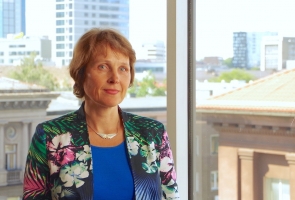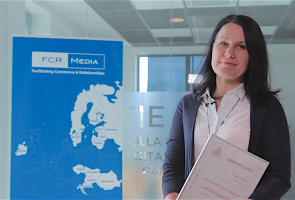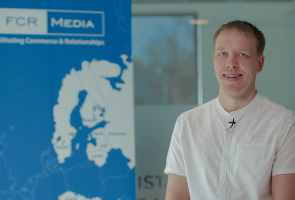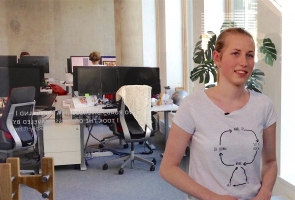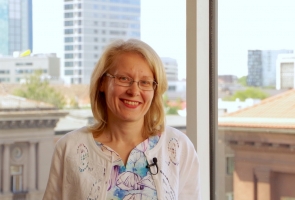MOVING BEYOND DEPRESSION Expected release: 2026

AT A GLANCE - MOVING BEYOND DEPRESSION
"Being sad and being depressed are two different things. Also, people going through depression don't look so, while someone sad will look sad. The most common reaction is, 'How can you be depressed? You have everything going for you. You are the supposed number one heroine... " – Deepika Padukone, the Indian film actress, movie producer & founder of Live Love Laugh Foundation
DEPRESSION REDUCTION ONLINE TRAINING
Depression is a silent epidemic and the number 1 cause of disability by 2030 according to the World Health Organization.
It is a major cause of disability, absenteeism, and productivity loss among working-age adults. Yet depression may be overlooked or minimized by sufferers and supervisors alike because it can't be diagnosed by a blood test or MRI.
The problem is that many don't know they are suffering from depression, and even if they suspect it, they tend to hide it.
HOW TO RECOGNISE DEPRESSION?
Depression isn't simply feeling low or sad. It is a genuine mental health concern that is triggered by several causes. Although depression may also occur once during your life, people typically have more than one episode.
During depression episodes, several symptoms occur during a more extensive period during a day or several days.
Depression symptoms may include:
- Feeling sad, hopeless, empty or depleted;
- Tiredness and lack of energy, even in case of small tasks;
- Feeling worthless or guilty;
- Experiencing anger outbursts, irritability or frustration;
- Loss of interest or pleasure in normal hobbies and activities;
- Anxiousness, agitation or restlessness;
- Sleep disturbances, like insomnia or oversleeping;
- A reduced appetite, often in combination with weight loss, or an increased appetite that may include weight gain;
- Slowed thinking or other mental abilities, slow speaking and physical body movements;
- Self-doubt, self-blame or long-term fixation on past failures;
- The trouble with rational thinking, concentration/focus and remembering things;
- Worry and lack of ability to make decisions;
- Frequent or reoccurring thoughts of death, suicidal thoughts and suicide attempts;
- Unexplained physical health problems, such as headaches or back pain, etc.
For most people with depression, those symptoms are usually severe and cause noticeable problems in day-to-day activities related to work or social life. Some people may even feel generally miserable or miserable without really understanding why.
THE ROLE OF WORKPLACES
There is still a lot of stigma related to mental health and it being one of the last taboos of our society, some employees feel comfortable sharing personal details, while others don't feel so.
Depression often means someone is less likely to want to discuss their thoughts, feelings, or behavior, which can lead others to misinterpret common symptoms as laziness or unprofessionalism.
Different pressures in the workplace due to stress are a major predisposing factor for all internal challenges.
HR has a vital role to play in supporting employees with their mental health – whether they are at work, off work, or returning to work.
When Vincent van Gogh, Tennessee Williams, and Brian Wilson suffered from depression, they were left on their own. Each day they struggled not only to do their work but also to get out of bed and function.
Once diagnosed, depression is possible to overcome, help for this is available from psychiatrists and is very effective. There are many examples of how people overcome their struggles and thrive, but such stories become more common when employees feel supported.
With intrapersonal skills as internal resources to manage emotions and mental events, depression can be prevented, or at the very least, people are more equipped to catch the illness in the bud (similarly to certain lifestyle choices predispose to or protect against the development of cardiovascular disease). All Wellness Orbit online trainings teach intrapersonal skills that support ways to restore their health.
BENEFITS OF DEPRESSION PREVENTION TRAINING FOR THE WORKPLACE:
► Enhances intrapersonal wellness, personal sustainability and mental resilience in the workplace;
► Prevents, rather than fire-fights a serious mood disorder by providing access to intrapersonal skills;
► Enables to recognize risk factors and symptoms of depression for early-stage intervention;
► Avoids loss of productivity caused by the illness, sustains contribution and motivation of employees;
► Provides a safe springboard for emerging talent by developing an atmosphere of empathy and trust;
► Saves lives, relationships, and jobs.
The online mental wellness focused online training content information is subject to change as the training is in the development phase.
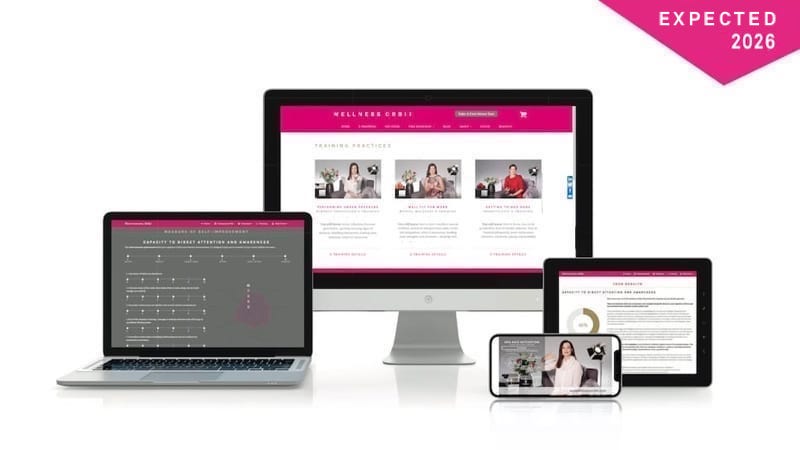
Until this mental health online training becomes available you can explore our other mental wellness online course options that are available today.
DEPRESSION CAN BE PREVENTED BY REDUCING THE BURNOUT RISK
As burnout has a high overlap (86% to 92%) with depression, we recommend taking the e-training "Performing Under Pressure". It is available to improve your mind health right now.
The online training "Performing Under Pressure" allows you and everyone else in your team to test actual stress levels and learn how to use burnout risk significantly.
You will learn: why stress reduction is important, spotting warning signs and symptoms of depression, risk factors, the role of brain chemistry, importance of treatment
You will solve: burnout and depression-related mental health problems
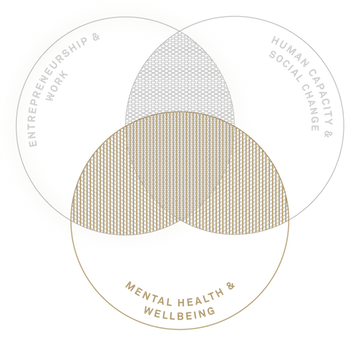
Category: Intrapersonal Skills for Mental Health & Wellbeing
THIS ONLINE TRAINING WILL INCLUDE:
► A start "spider" to evaluate the participant's individual status before the training.
► 5 mental health training videos:
Session 1: What Happens in the Brain
Session 2: Risk Factors & Symptoms
Session 3: How to Support Yourself & Others
Session 4: Treatment Options
Session 5: Strategies for Prevention
► Quiz to consolidate the learned.
► Workbook (incl. group discussion guidelines).
► Promotional materials + certificate.
► A final "spider" to evaluate participants individual status after the training.
► Alumni discussion group (incl. possibility to ask questions after the training).
AT A GLANCE - MOVING BEYOND DEPRESSION
"Being sad and being depressed are two different things. Also, people going through depression don't look so, while someone sad will look sad. The most common reaction is, 'How can you be depressed? You have everything going for you. You are the supposed number one heroine... " – Deepika Padukone, the Indian film actress, movie producer & founder of Live Love Laugh Foundation
DEPRESSION REDUCTION ONLINE TRAINING
Depression is a silent epidemic and the number 1 cause of disability by 2030 according to the World Health Organization.
It is a major cause of disability, absenteeism, and productivity loss among working-age adults. Yet depression may be overlooked or minimized by sufferers and supervisors alike because it can't be diagnosed by a blood test or MRI.
The problem is that many don't know they are suffering from depression, and even if they suspect it, they tend to hide it.
HOW TO RECOGNISE DEPRESSION?
Depression isn't simply feeling low or sad. It is a genuine mental health concern that is triggered by several causes. Although depression may also occur once during your life, people typically have more than one episode.
During depression episodes, several symptoms occur during a more extensive period during a day or several days.
Depression symptoms may include:
- Feeling sad, hopeless, empty or depleted;
- Tiredness and lack of energy, even in case of small tasks;
- Feeling worthless or guilty;
- Experiencing anger outbursts, irritability or frustration;
- Loss of interest or pleasure in normal hobbies and activities;
- Anxiousness, agitation or restlessness;
- Sleep disturbances, like insomnia or oversleeping;
- A reduced appetite, often in combination with weight loss, or an increased appetite that may include weight gain;
- Slowed thinking or other mental abilities, slow speaking and physical body movements;
- Self-doubt, self-blame or long-term fixation on past failures;
- The trouble with rational thinking, concentration/focus and remembering things;
- Worry and lack of ability to make decisions;
- Frequent or reoccurring thoughts of death, suicidal thoughts and suicide attempts;
- Unexplained physical health problems, such as headaches or back pain, etc.
For most people with depression, those symptoms are usually severe and cause noticeable problems in day-to-day activities related to work or social life. Some people may even feel generally miserable or miserable without really understanding why.
THE ROLE OF WORKPLACES
There is still a lot of stigma related to mental health and it being one of the last taboos of our society, some employees feel comfortable sharing personal details, while others don't feel so.
Depression often means someone is less likely to want to discuss their thoughts, feelings, or behavior, which can lead others to misinterpret common symptoms as laziness or unprofessionalism.
Different pressures in the workplace due to stress are a major predisposing factor for all internal challenges.
HR has a vital role to play in supporting employees with their mental health – whether they are at work, off work, or returning to work.
When Vincent van Gogh, Tennessee Williams, and Brian Wilson suffered from depression, they were left on their own. Each day they struggled not only to do their work but also to get out of bed and function.
Once diagnosed, depression is possible to overcome, help for this is available from psychiatrists and is very effective. There are many examples of how people overcome their struggles and thrive, but such stories become more common when employees feel supported.
With intrapersonal skills as internal resources to manage emotions and mental events, depression can be prevented, or at the very least, people are more equipped to catch the illness in the bud (similarly to certain lifestyle choices predispose to or protect against the development of cardiovascular disease). All Wellness Orbit online trainings teach intrapersonal skills that support ways to restore their health.
BENEFITS OF DEPRESSION PREVENTION TRAINING FOR THE WORKPLACE:
► Enhances intrapersonal wellness, personal sustainability and mental resilience in the workplace;
► Prevents, rather than fire-fights a serious mood disorder by providing access to intrapersonal skills;
► Enables to recognize risk factors and symptoms of depression for early-stage intervention;
► Avoids loss of productivity caused by the illness, sustains contribution and motivation of employees;
► Provides a safe springboard for emerging talent by developing an atmosphere of empathy and trust;
► Saves lives, relationships, and jobs.
The online mental wellness focused online training content information is subject to change as the training is in the development phase.

Until this mental health online training becomes available you can explore our other mental wellness online course options that are available today.
DEPRESSION CAN BE PREVENTED BY REDUCING THE BURNOUT RISK
As burnout has a high overlap (86% to 92%) with depression, we recommend taking the e-training "Performing Under Pressure". It is available to improve your mind health right now.
The online training "Performing Under Pressure" allows you and everyone else in your team to test actual stress levels and learn how to use burnout risk significantly.
Private test account
Please check your e-mail for username and the password.
Price details
-
This investment allows you or your team to access all available Training Practices for 12 months (Annual Membership) or one Training Practice for 3 months (Single Training). Annual Membership allows unlimited re-participation in all training(s) for the chosen number of participants for 12 months. Single Training is open for 3 months and accessible for re-participation for the chosen number of participants.
-
With Annual Membership, you win 25% compared to investing in a single training.
-
If the actual amount of users on the platform exceeds the stated team size, your billing will be transferred to the next payment level and the fee difference is billed additionally.
-
If your team has more than 1500 employees or if you prefer to combine different e-trainings or longer training periods ask for a custom offer.
-
Individuals are welcome to buy the training for a single user.
-
By placing the order, you fully accept the Terms and Conditions.


